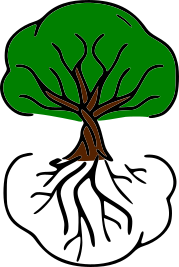In Literature Appetizer, Ben gives you just a taste of a book. Not meant to replace the full meal, this is meant to whet your appetite. Bon appetit!
Back in ‘17, I was looking at completing my grad school experience at the North Cascades. At the time, I was the “blog writer” for NCI. Because of that job I had discovered that I did enjoy writing, especially in the less formal “blog” format. So I bought my own website to make Rooted in Dreams.
One of the series of blogs that I wanted to focus on was Literature Appetizer. It became a good way for me to process the books I read, even if no one read those posts. But I always felt weird when I read “smaller” or not Environmental Education based books. Should I put that on the website, even if it is only a few sentences?
This is an experiment; combining all Lit-Apps for a season into one post. Let me know your thoughts!
Hidden Half of Nature by David R Montgomery and Anne Bikle
This book is about how the soil is a micro-ecosystem and needs to be cared for just as we care for our national parks. I’m going to quote myself earlier about my thoughts on Finding the Mother Tree: “…but I have to be honest. This just wasn’t the book for me.”
I fully understand that authors sharing personal stories can give the reader different connections into what they are talking about, but I tend to tire of those. I know it makes me sound obnoxious or as if I don’t have a heart…and yet I still just don’t enjoy reading them.
For example, minor spoilers for the book, they were discussing how microrganisms can affect the way we live our lives. I was loving all the connections they made about the soil and what lived in it. But out of no where they drop “and then one of us got cancer.”
I can see that connection between thinking about your body as an ecosystem under attack and our outdoor environments, but the authors spend the majority of the book discussing everything they did to combat this cancer. Yes, I feel like they connected it back to the micro ecosystem in the soil of their garden. But at the end of the day this felt more like a story about the authors than what I was interested in: the soil.
The Ends of the World by Peter Brannen
On the complete other end of the spectrum, this book was specifically written for me. Yes, there were some asides into the author interviewing scientists, but Peter Brannen goes over all the major almost life ending apocalypses that Earth has faced.
This is now my top recommended book about Climate Change. So many of the extinction events happened because of a rise in CO2. He spends time in each era describing what we know, and what scientists are fighting about. Even though we are no where near the levels of CO2 during the Late Devonian, for example, he shows what the earth would look like if we don’t stop our current use of burning fossilized plant matter.
I’ll end on my favorite fun fact in this book: scientists don’t know the exact year the asteroid hit that killed the dinosaurs, but they do know it was in the summer based on fossilized pollen.
The Living Mountain by Nan Shepard
Nan Shepard is a legend of nature writing in Scotland. Even though this is a short book, her writing takes me back to my short time in Scotland last spring. She does an excellent job describing everything, from lochs to snow to even the people that live in the wilder parts of Scotland.
Even if you have never been, I highly recommend this as a unique and wonderful example of writing into words the experience folks have in wild places.
How to Read Nature by Tristan Gooley
Gooley is a natural navigator in the United Kingdom and shares some exercises you can do to be more aware of what is happening in your local ecosystem. A lot of the exercises he covered I did at my time in the North Cascades.
If you want a slice of my time in the mountains I would for sure read this!
Vattu by Evan Dahm
Even though this is a comic and not the written word, I highly recommend this as a wonderful adventure of how an empire hurts culture as well as people.


